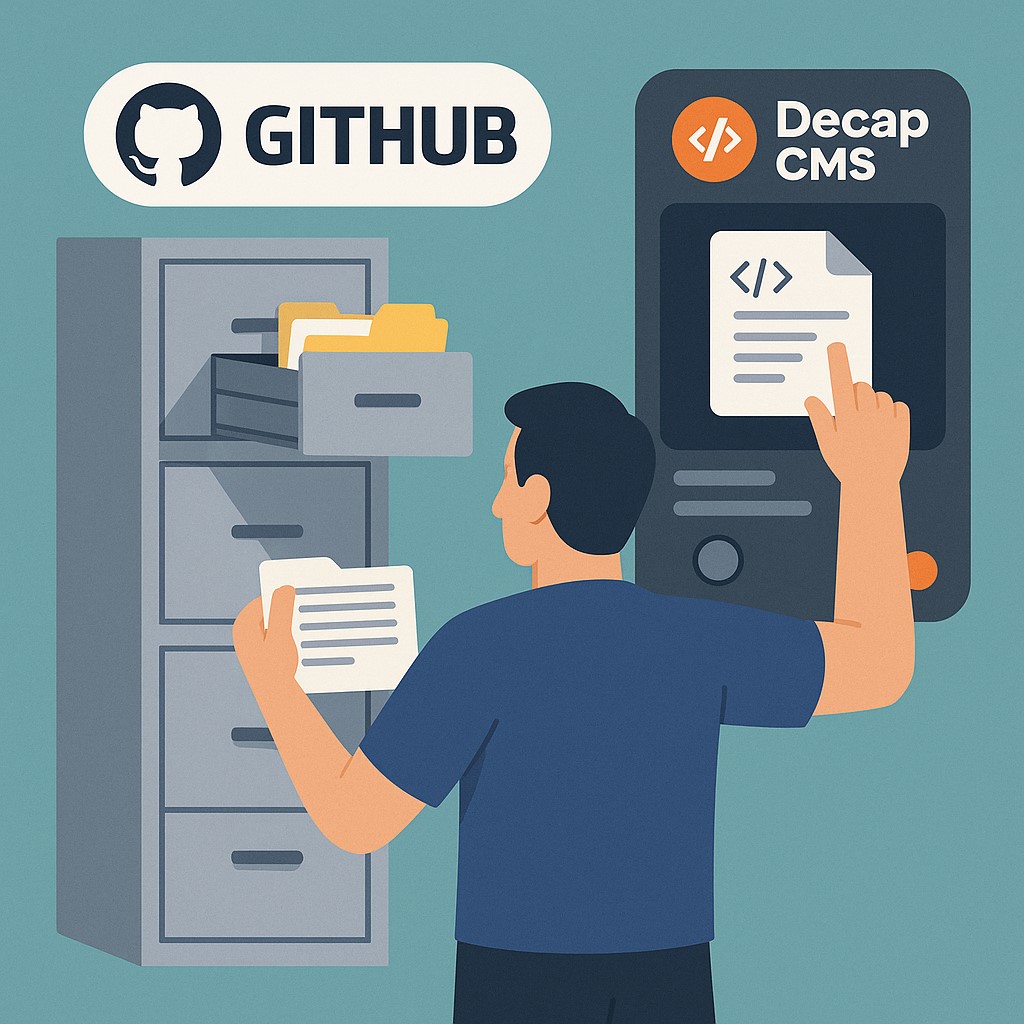May 31, 2025
Ever wish managing your content site was as smooth as your git commits? If you’re tired of bloated, database-heavy CMS platforms or manually editing Markdown files every time you need to publish a post, you’re not alone. Enter **Decap CMS**—a powerful, git-based, headless CMS that’s built for speed, simplicity, and modern web workflows. If you're using static site generators (SSGs) like Hugo, Jekyll, or Eleventy, or building with server-side rendering (SSR) frameworks like Next.js, this is the content management solution you’ve been looking for.

Let’s break it down.
What Is Decap CMS and Why Should You Care?
Decap CMS (formerly Netlify CMS) is an open-source, headless CMS designed to work with flat-file websites. Unlike traditional CMS platforms that store content in databases, Decap works directly with your Git repository, treating content like code. That means no clunky UI, no MySQL headaches, and no limitations on where or how your site is hosted.
It’s particularly popular among developers using SSGs (Static Site Generators), such as:
- Hugo
- Jekyll
- Eleventy
- Astro
- Next.js (via hybrid/static rendering)
Instead of logging into a separate admin dashboard hosted on some server, you get a React-based admin interface that commits content changes straight to your repo. That’s right: every edit becomes a versioned git commit.
Decap turns your flat file site into a content powerhouse—without adding backend complexity.
The Perks: Why Developers and Content Editors Love Decap
Whether you’re a solo dev, part of a JAMstack team, or building marketing sites at scale, Decap CMS checks a lot of boxes. Here are some of the major advantages:
- ✅ Git-based: Content is version-controlled, secure, and portable.
- ✅ Flat File Friendly: No databases—just Markdown, JSON, or YAML.
- ✅ Headless: Easily integrates with any frontend stack.
- ✅ Open Source: No lock-in, fully customizable.
- ✅ User-Friendly UI: Editors can publish without touching code.
- ✅ Workflow Support: Drafts, previews, and custom workflows out of the box.
- ✅ Self-hosted or JAMstack Ready: Works anywhere your repo lives—GitHub, GitLab, Bitbucket.
In short: it’s the perfect balance of dev freedom and editor simplicity.
How It Works: Under the Hood of a Git-Based CMS
Decap CMS integrates directly with your git repository. It works by defining a config.yml file that maps your content structure (e.g., blog posts, pages, products). You drop this configuration in your static site project, and voilà—Decap gives you a browser-based interface for content editing.
Here’s what happens when an editor adds or updates a post:
- They log in via the Decap interface (auth via Netlify Identity, Git Gateway, or OAuth).
- The CMS creates or updates a Markdown or JSON file in your repo.
- The change is committed as a new git commit.
- Your SSG (like Hugo or Eleventy) picks up the change and regenerates the static site.
- Your hosting platform (e.g., Netlify, Vercel) redeploys automatically.
It’s a content workflow that’s built around modern DevOps.
SSG, SSR, or Hybrid? Decap Fits in All the Right Places
One of the biggest misconceptions is that Decap CMS only works with pure static sites. Not true. While it shines with SSGs, it’s also an excellent fit for hybrid or SSR frameworks like Next.js.
Because it’s headless and git-based, the backend doesn’t care how you render the frontend. You can use Decap with:
- Static-only sites (Jekyll, Hugo)
- Incrementally generated sites (Next.js ISR)
- Server-rendered pages (Next.js SSR, SvelteKit, Nuxt)
And since content is just flat files in your repo, it’s future-proof. You can even move to a new framework or hosting provider without losing your content pipeline.
Real Talk: Is Decap CMS Right for You?
If you’re a developer who:
- Wants full control over content architecture
- Hates traditional CMS maintenance
- Needs something collaborators can use easily
- Works with SSGs or headless architectures
- Wants content changes to live in git (like everything else)
Then yes, Decap is probably a no-brainer.
On the flip side, if you require advanced user permissions, complex content modeling, or rely on real-time content APIs, you might want to pair Decap with other tools—or consider more API-heavy headless CMSs like Sanity or Strapi.
Conclusion: A Developer-First CMS That Doesn’t Suck
Decap CMS gives you the power of a headless, git-based content workflow without the baggage of traditional CMS platforms. It’s fast, flexible, and friendly to both developers and editors. Whether you’re building a blog, portfolio, documentation site, or product landing pages, Decap helps you scale your content the smart way—using the same tools you already love.
Ready to modernize your content workflow?
Give Decap CMS a spin and experience flat file freedom with git-powered confidence.